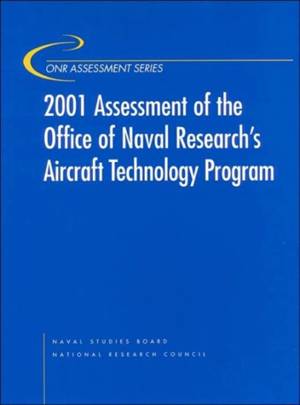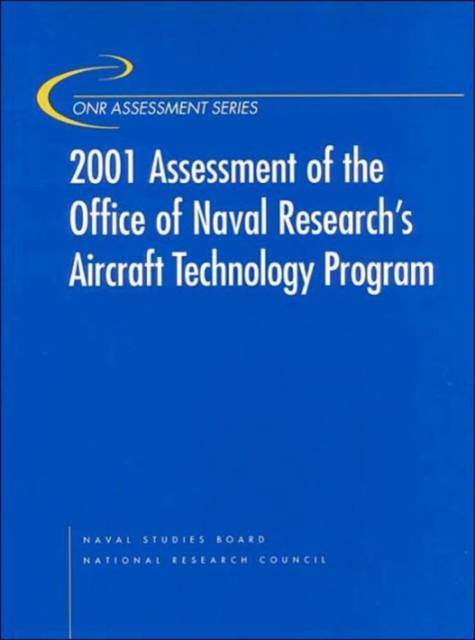
- Retrait gratuit dans votre magasin Club
- 7.000.000 titres dans notre catalogue
- Payer en toute sécurité
- Toujours un magasin près de chez vous
- Retrait gratuit dans votre magasin Club
- 7.000.0000 titres dans notre catalogue
- Payer en toute sécurité
- Toujours un magasin près de chez vous
2001 Assessment of the Office of Naval Research's Aircraft Technology Program
National Research Council, Division on Engineering and Physical Sciences, Naval Studies Board, Committee for the Review of Onr's Aircraft Technology ProgramDescription
The Office of Naval Research (ONR) contracted with the Naval Studies Board (NSB) of the National Research Council (NRC) to establish a committee to review ONR's Aircraft Technology Program (ATP). The committee convened on May 15 and 16, 2001, and reviewed some 28 science and technology (S&T) efforts that were presented as constituting the ATP. The committee met separately on May 17, 2001, to formulate its findings and recommendations. This report represents the consensus opinion of the committee and is based on the information presented at the review. The ONR ATP resides within the Strike Technology Division (Code 351) of the Naval Expeditionary Warfare Science and Technology Department (Code 35). In 2001 the ATP is funded at $55.0 million, which is approximately 60 percent of the Strike Technology Division budget. The ATP S&T 2001 budget is further divided into the following categories: (1) 6.1 basic research at $4.3 million, (2) 6.2 exploratory development at $18.1 million, and (3) 6.3 advanced development, including technology demonstrations, at $32.5 million. However, the ATP will be in major transition beginning in FY02.
Starting in FY02, all of the 6.3 funding and one-half of the 6.2 funding at the ONR will be dedicated to 12 major program areas referred to as Future Naval Capabilities (FNCs). The purpose of the FNCs is to focus advanced technology development at ONR on naval force capabilities that have been identified as high priority for the future by a cross-functional group of naval operators, naval development and support organizations, and ONR program managers. Plans have been made to integrate several of the Code 351 programs reviewed into FNCs. The ATP was presented to the committee in six thrust areas: integrated avionics, propulsion and power, air vehicle technology, unmanned aerial vehicles/unmanned combat air vehicles (UAVs/UCAVs), survivability, and special aviation projects. Several projects were presented within each thrust area. The committee organized this report in response to these thrust areas, and in several of these areas it also suggests new S&T topics for consideration for the future ATP. The findings and recommendations of the committee are summarized in this report.
Spécifications
Parties prenantes
- Auteur(s) :
- Editeur:
Contenu
- Nombre de pages :
- 70
- Langue:
- Anglais
Caractéristiques
- EAN:
- 9780309076173
- Date de parution :
- 27-10-01
- Format:
- Livre broché
- Format numérique:
- Trade paperback (VS)
- Dimensions :
- 216 mm x 279 mm

Les avis
Nous publions uniquement les avis qui respectent les conditions requises. Consultez nos conditions pour les avis.






